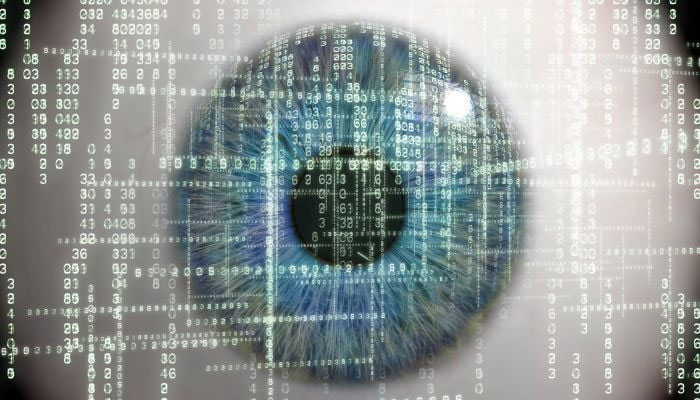Surveillance state
State of Pakistan must realize how violating its citizens’ privacy does not make country strong; it only weakens it
The Pakistan Telecommunication Authority (PTA) had mandated telecom companies to finance, import, and install a system enabling mass surveillance of citizens’ data. This information was revealed in a case at the Islamabad High Court (IHC) regarding the illegal surveillance of citizens and private phone conversations being recorded. The case is regarding the petitions filed by former prime minister Imran Khan’s wife Bushra Bibi and former chief justice of Pakistan Saqib Nisar’s son Najam Saqib against alleged audio leaks. The Lawful Intercept Management System (LIMS) being apparently used allows access to private messages, video/audio content, call records, and web browsing histories, according to court documents. In the order dated June 26, Justice Babar Sattar of the IHC noted that LIMS was being utilized by “designated agencies” for surveillance purposes. According to reports, the PTA directive required telecom companies to facilitate surveillance on two per cent of their customer base, potentially affecting over four million citizens simultaneously. As Justice Sattar notes, this mass surveillance had no legal cover and was being operated without judicial or executive oversight. This revelation is a damning indictment of our state that coerces private telecom companies to spy on our own citizens. When we look at the numbers, four million citizens being surveilled by ‘designated agencies’ is no ordinary number. Even if it were just one citizen being surveilled illegally, it would have created an uproar in any other country and the state would have been sued for its excesses. Unfortunately, we live in a country where the state breaches people’s privacy with impunity. For now, the IHC has temporarily barred telecom companies from letting LIMS access their networks or from procuring consumer data while the hearing of the case has been adjourned till September.
It is jarring that a state would go to such lengths to spy on its citizens without any legal cover and for no rhyme or reason. Surveillance is used to nab terrorists or criminals but that too has to have a legal cover to stand in a court of law. However, we have seen that private phone conversations of politicians, their families, or even judges’ families are leaked on social media in Pakistan and then they are discussed repeatedly in the media due to the nature of the conversations. Interestingly, not many ask who recorded these conversations and how they were leaked because somehow this is Pakistan’s worst-kept secret. It is not uncommon for politicians, lawyers, judges, bureaucrats, journalists and many others to find out that their phone calls are being tapped. But most of the time, they feel that they cannot do anything to stop this illegal surveillance.
Now that it has been revealed how the state uses private telecom companies to access citizens’ data, there is hope that the court will put a permanent stop to this. There are those who are sceptical that there will be an end to this because they believe that Pakistan has become a police state where no rules apply to some. The fact, regardless, is that only insecure states spy on their own people without any valid reason and in an illegal manner. If there is a need to spy on people who are high-valued criminals or terrorists, the judiciary would not refrain from giving legal cover to their surveillance. The state of Pakistan must realize how violating its citizens’ privacy does not make the country strong; it only weakens it.
-
 Billie Eilish Slammed For Making Political Speech At Grammys
Billie Eilish Slammed For Making Political Speech At Grammys -
 Beverley Callard Announces Her Cancer Diagnosis: 'Quite Nervous'
Beverley Callard Announces Her Cancer Diagnosis: 'Quite Nervous' -
 WhatsApp May Add Instagram Style Close Friends For Status Updates
WhatsApp May Add Instagram Style Close Friends For Status Updates -
 Winter Olympics Officially Open In Milan, Cortina With Historic Dual Cauldron Lighting
Winter Olympics Officially Open In Milan, Cortina With Historic Dual Cauldron Lighting -
 Sciences Reveals Shocking Body Response Against Heart Attack
Sciences Reveals Shocking Body Response Against Heart Attack -
 Who Is Charlie Puth? Inside Awards, Hits & Journey Of Super Bowl Anthem Singer
Who Is Charlie Puth? Inside Awards, Hits & Journey Of Super Bowl Anthem Singer -
 Jared Leto 'swings For The Fences' In 'Master Of The Universe'?
Jared Leto 'swings For The Fences' In 'Master Of The Universe'? -
 Kelsea Ballerini, Chase Stokes Not On Same Page About Third Split: Deets
Kelsea Ballerini, Chase Stokes Not On Same Page About Third Split: Deets -
 Shanghai Fusion ‘Artificial Sun’ Achieves Groundbreaking Results With Plasma Control Record
Shanghai Fusion ‘Artificial Sun’ Achieves Groundbreaking Results With Plasma Control Record -
 Princess Anne Enjoys Andrea Bocelli, Lang Lang Performances At Winter Olympics Opening Ceremony
Princess Anne Enjoys Andrea Bocelli, Lang Lang Performances At Winter Olympics Opening Ceremony -
 Ben Stiller Cherishes Working With Late David Bowie
Ben Stiller Cherishes Working With Late David Bowie -
 Anti-inflammatory Teas To Keep Your Gut Balanced
Anti-inflammatory Teas To Keep Your Gut Balanced -
 Polar Vortex ‘exceptional’ Disruption: Rare Shift Signals Extreme February Winter
Polar Vortex ‘exceptional’ Disruption: Rare Shift Signals Extreme February Winter -
 Which Countries Are Worst And Best In Public Sector AI Race?
Which Countries Are Worst And Best In Public Sector AI Race? -
 Matthew McConaughey Opens Up About His Painful Battle With THIS
Matthew McConaughey Opens Up About His Painful Battle With THIS -
 Emma Stone Reveals She Is ‘too Afraid’ Of Her ‘own Mental Health’
Emma Stone Reveals She Is ‘too Afraid’ Of Her ‘own Mental Health’




